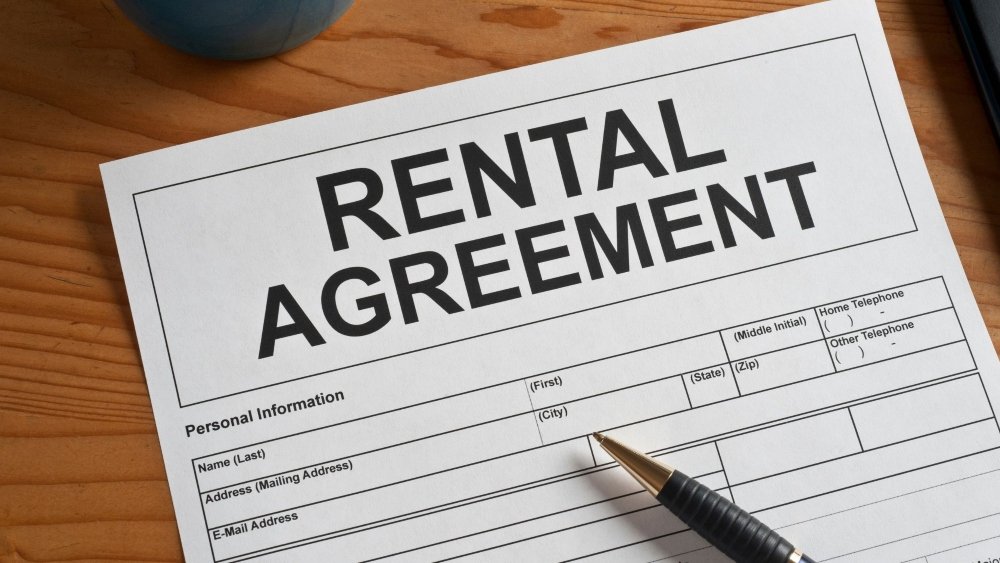Last Updated on June 27, 2025 by Julian Espinosa
Are you considering leveraging your property investments for retirement income? Rental property management offers a promising opportunity for seniors looking to secure financial stability during their golden years. However, managing rental properties involves more than just collecting monthly rent—it requires strategic planning, understanding key challenges, and implementing effective solutions.
In today’s evolving rental market, seniors face unique challenges in property management, from finding reliable tenants to keeping up with maintenance demands and navigating complex legal requirements. The good news? With the right approach, these hurdles become manageable, allowing you to enjoy the benefits of steady rental income without unnecessary stress.
This comprehensive guide explores the four biggest challenges in rental property management and provides practical solutions tailored specifically for seniors. You’ll discover:
- How to effectively screen and retain quality tenants who will respect your property
- Strategic approaches to property maintenance that prevent costly emergency repairs
- Methods for streamlining financial operations and maximizing your investment returns
- Techniques for managing legal and regulatory requirements with confidence
- Options for property management approaches that match your lifestyle needs
Whether you’re managing vacation homes, secondary properties, or investment units, we’ll help you understand which property management approach—self-management, professional property managers, or specialized services — best suits your circumstances.
Ready to transform your property into a reliable income source without the headaches? Continue reading to learn how to tackle common rental management challenges and create a sustainable, profitable investment strategy for your retirement years.
Rental Property Basics
Rental properties represent an excellent income opportunity for seniors and retirees. However, managing these investments comes with several challenges. Effective rental property management involves navigating a wide range of responsibilities, from finding reliable tenants to handling regular maintenance and financial operations.
Converting a vacation home or additional property into a rental, however, requires more than simply finding tenants. Seniors need to carefully consider the logistics of leasing agreements, effective marketing strategies, and ongoing property maintenance. These responsibilities can be demanding, particularly for those who may not live near their rental properties or who aren’t familiar with the latest digital tools for property management.
Rental property management is essential for making these secondary homes profitable. Balancing the various responsibilities of property ownership—from marketing your rental to maintaining the property and handling tenant relationships — requires effort and planning. Without proper management, your property investment could become a financial liability if tenants don’t fulfill their obligations.
Prefer to listen than read?

Challenges of Rental Property Management
Managing rental properties can be tough. Landlords often face problems like finding good tenants, handling repairs, and keeping track of finances. These challenges can make the job stressful and time-consuming. Understanding these common issues can help landlords be better prepared and more successful in managing their properties.
Finding and Retaining Reliable Tenants
Finding and retaining reliable tenants is crucial for the success of any rental property management strategy. It ensures a steady income stream that covers the maintenance costs and taxes. This process requires careful planning and execution. If done right, it can significantly reduce the stress and financial unpredictability associated with rental properties.
- Effective Advertising Strategies
- Property owners need to market their rentals effectively. This involves listing the property on popular rental websites, using high-quality photos, and crafting appealing descriptions. Effective advertising should highlight the unique features of the property and the community amenities that might attract potential renters. By reaching a wider audience, landlords quickly increase their chances of finding reliable tenants.
- Thorough Tenant Screening Process
- Once potential tenants show interest, the screening process becomes pivotal. This should include credit checks, employment verification, and references from previous landlords. A thorough screening process helps identify tenants who are financially stable and have a history of reliability. Implementing stringent screening criteria is fundamental to successful rental property management, as it minimizes the risk of rent defaults and problematic tenancies.
- Building and Maintaining Tenant Relationships
- Retaining tenants is as important as finding them. This involves maintaining open lines of communication, responding promptly to repair requests, and ensuring the property is kept in good condition. Building a good relationship with tenants can encourage longer stays, reducing turnover rates and the costs of finding new renters. Effective rental property management includes regular check-ins and updates, which can help landlords anticipate and address any concerns before they become major issues.
Focusing on these key areas enhances your chances of finding and retaining reliable tenants. Paying tenants is essential for the profitability and sustainability of your rental investments.
Dealing with Maintenance and Repairs
Dealing with maintenance and repairs is integral to managing rental properties. Doing so keeps tenants happy and preserves the property’s value. However, this aspect of rental property management can often be challenging, especially when unexpected problems arise. With a structured approach, property owners can minimize disruptions and ensure their property remains in top condition.
- Establishing a Maintenance Schedule
- Regular maintenance is vital in preventing minor issues from becoming major expenses. Property owners should create a comprehensive maintenance schedule that includes regular inspections and servicing major systems like heating, plumbing, and air conditioning. This proactive approach helps identify potential problems before they require costly repairs, ensuring the property remains attractive and functional for tenants.
- Responsive Repair Processes
- A swift response is crucial to tenant satisfaction and legal compliance when repairs are necessary. Property owners should have a reliable network of qualified plumbers, electricians, and general contractors who can be called upon at short notice. Efficient rental property management systems often include the use of technology to track repair requests and monitor the status of ongoing maintenance work, ensuring that nothing slips through the cracks.
- Financial Planning for Repairs
- Unexpected repairs can impact rental property management’s financial stability. Setting aside a portion of the rental income for a maintenance fund can help absorb these costs without financial strain. This fund should be sufficiently capitalized to cover routine maintenance and provide a buffer for larger, unforeseen repairs. Such financial planning secures the property’s condition and assures tenants that the management is capable and prepared.
By prioritizing maintenance and repairs and integrating them into the broader management strategy, property owners can enhance tenant satisfaction, maintain property value, and reduce the overall stress of rental property management.

Managing Legal and Financial Obligations
Good rental property management requires exact attention to legal and financial responsibilities. These obligations depend on maintaining property value, guaranteeing income, and guaranteeing compliance. Proper management of these features helps you avoid financial mistakes and legal conflicts, smoothing out the property management process and increasing its efficiency.
Adhering to Legal Regulations
Knowing and following local and federal housing rules is essential for managing rental properties. Property owners must be knowledgeable about fair housing rules, tenant rights, and eviction procedures. Frequent updates and legal matter-specific training are crucial to prevent mistakes that can lead to penalties or lawsuits. Maintaining current law modifications and contacting legal professionals will help guarantee that every practice is compliant and modern.
Streamlining Financial Operations
Good rental property management depends mostly on the efficient handling of financial transactions. This covers handling maintenance expenses and other charges as well as effectively gathering rent, security deposits, and fees. Using property management tools and strong accounting techniques can help simplify these procedures and guarantee prompt resolution of any financial concerns. This helps with clear financial reporting, tax preparation, and financial forecasts.
Implementing Risk Management Strategies
Maintaining the continuity of rental property management and the investment depends on effective risk control. This entails getting enough insurance covering liability, property damage, and income loss. One important habit that should not be neglected is routinely evaluating the property’s risk level and modifying insurance coverage in line with it. This calculated approach guarantees the property’s ongoing profitability and security and helps to minimize possible financial losses.
Carefully handling your legal and financial responsibilities preserves your financial stream. It is an essential aspect of rental property management that keeps your secondary house profitable.
Ensuring Property Profitability
Effective property management revolves mostly around making a rental property profitable. It calls for strategic planning, effective management, and continuous financial performance evaluation of the property as well as for filling openings.
Concentrating on these areas helps property owners to maximize their returns and guarantee the long-term viability of their investment.

Optimizing Rental Rates
Maximizing property profitability depends critically on the correct rental pricing. Though prices should be competitive, they should reflect the value, location, and facilities of the house. Market research allows property owners to match their rates with those of similar properties in the neighborhood. Based on market trends and property improvements, regular reviews and rate changes for the rental help to preserve a balance between drawing tenants and optimizing income.
Reducing Vacancy Rates
Maintaining consistent income from rental buildings depends on minimizing vacancy times. Good marketing plans, including open houses, virtual tours, and internet listings, help draw more possible renters. Good relationships with present tenants can also help promote lease renewals, lowering turnover and the expenses of property preparation for new occupants.
Controlling Operating Expenses
Improving profitability depends on effective control of running costs. This covers establishing agreements with service providers for better prices and routine maintenance inspections to avoid expensive repairs. Cost-effective improvements that boost energy efficiency should also be taken into account by property owners since they could lower utility expenses and raise the attraction of the property to potential tenants.
These pointers can help you improve the profitability of your rental assets. You will often face these rental challenges after successfully having paying tenants live in your property.
Property Management Approaches
Self-Management
Self-management is the property owner assuming complete responsibility for running a rental property. This covers chores such property marketing, tenant screening, lease administration, maintenance and repairs, and legal regulatory compliance assurance. Those that decide this path have to be ready to commit major time and effort to properly run their properties.
Benefits of Self-Management
The most important benefit of self-management is the amount of control you have. Managing the property yourself lets you make decisions fast without having to wait for or consult with third-party approval. This direct involvement could make more customized tenant connections, possibly increasing tenant satisfaction and retention. There are also the savings you enjoy from tackling all tasks by yourself.
Disadvantages of Self-Management
Self-management is the most difficult of the three options since you are solely responsible for every decision. Depending on the number of properties owned, the time commitment needed can be significant and usually corresponds to part-time or even full-time employment. Property owners must be broadly skilled in many other fields, such as real estate law, finance, and property upkeep.
Moreover, the tension related to managing tenant problems, crises, and continuous upkeep can be high. The pressures of self-management may become intolerable without the correct methods and support, causing burnout.
If you have the time and ability to run your properties properly, self-management is a self-fulfilling and money-saving option. The difficulties it presents should not be undervalued, though, and property owners should consider whether this strategy fits their lifestyle and personal capacity.

Realtor Management
Realtor management is the rental property management duties given to a qualified real estate agent or realtor. These experts’ many chores include promoting the property, locating and screening tenants, handling lease negotiations, collecting rent, and coordinating maintenance and repairs. Realtors also guarantee adherence to all relevant housing rules and regulations, offering an expert touch for managing your investment.
Benefits of Realtor Management
Using realtors for your rental property management has mostly benefits in terms of professional competence. Realtors bring a thorough awareness of the rental industry, including pricing policies and tenant needs, which can help speed up tenant placement and maybe increase rates.
They have also built networks of maintenance experts who may frequently provide your property with faster and less expensive services. Since realtors are educated to follow the most recent property rules and regulations, they can also help to lower the legal risks related to rental property management.
Disadvantages of Realtor Management
Realtor management has several drawbacks, the biggest among them being cost. Usually, a proportion of the monthly rent, a management charge paid by property owners, will reduce the investment’s profitability. Moreover, depending on a third party could occasionally result in a lack of personal care for your property. Realtors oversee several properties, so they might not provide the targeted attention and care you need for your particular investment needs. Finally, realtors vary in their degree of service quality. Hence, selecting a manager carefully is imperative to guarantee efficient property handling.
Realtor management uses professional knowledge to run rental properties properly, providing a less hands-on method for property owners. Although it comes with extra expenses and certain differences in service quality, expert daily operations administration can greatly reduce owners’ property management stress.
Specialist Management
Specialized rental property management businesses provide a broad spectrum of services covering all aspects of rental property management. These cover lease negotiations, tenant screening, property marketing, regular maintenance, emergency repairs, legal compliance, These companies offer a scalable solution for property owners with large portfolios or those who just want a hands-off approach since they are ready to handle several properties effectively.
Benefits of a Specialist Management
The main benefit of specialist management is the professional and thorough service these companies offer. Their degree of knowledge guarantees the best handling of every facet of property administration.
Specialty rental property management has systems in place, for example, for aggressive marketing and extensive tenant screening procedures that enable fast filling of openings with competent candidates. These businesses also frequently have ties to service suppliers and contractors, guaranteeing quick and reasonably priced maintenance and repairs.
Expert property managers also know how to negotiate the convoluted terrain of rental regulations. This is a problem since it differ greatly between various areas. A specialist’s knowledge helps to reduce the legal risk resulting from non-compliance. Their regular reporting and financial control also allow property owners to monitor the performance of their investments closely without being involved in daily operations.

Drawback of a Specialist Management
The biggest disadvantage of specialized rental property management is the cost. Like realtors, specialists take a proportion of the monthly rental income. Although some property owners might find this outlay excessive, it must be balanced with specialized companies’ great services and possible time and risk management savings.
A specialist is a great option for a professional approach to running your rental properties. Because their profit depends on the revenue stream of your rentals, they will do everything to make your secondary homes profitable. Fortunately, specialist rental property management is much more efficient than realtors.
Essential Financial Management Tips for Rental Property Owners
Owning a rental property can be a lucrative venture, but managing its financial aspects efficiently is crucial. Here are some key strategies to maintain your property’s profitability and keep your finances in check:
Track Income and Expenses
- Record Every Dollar: Meticulously record rent payments, security deposits, and all expenses. This includes costs for maintenance, repairs, mortgage payments, insurance, taxes, and utilities.
- Use Software Solutions: Leverage property management software like QuickBooks or AppFolio to automate and simplify tracking your finances.
Budget for Vacancy Periods
- Plan for the Unexpected: Having a financial cushion for periods when your property is vacant is vital. This buffer will allow you to cover the mortgage and upkeep costs until you secure a new tenant.
- Emergency Fund: Establish a reserve fund specifically for these situations to avoid potential financial strain.
Organize Important Documents
- Systematize Your Files: Establish a reliable organizing system for your financial and legal documents. Choose between a physical filing cabinet or a digital document management system.
- Consistent Access: Ensure you can easily access critical documents at all times so you’re always prepared for audits or legal inquiries.
Effective Tax Management
- Maximize Deductions: Be proactive during tax season. Familiarize yourself with allowable deductions associated with property ownership to reduce your taxable income.
- Consult Professionals: Consider hiring a tax advisor with experience in real estate to navigate complex tax laws and maximize your financial benefits.
Regular Financial Reviews
- Monthly Check-ins: Conduct monthly reviews of your income and expenses to spot trends, assess financial health, and adjust your budget as necessary.
- Performance Metrics: Use key performance indicators (KPIs) like net operating income and cash flow projections to evaluate your property’s profitability.
These strategies allow rental property owners to streamline their finances, prepare for uncertainties, and maximize their investment returns. Keep these tips in mind to enhance your financial management skills and ensure your rental business thrives.
Why Being Available to Tenants is Crucial
Being accessible to your tenants is essential for maintaining a successful rental property. Quick response to repair and maintenance requests ensures that your property stays in good condition, which can prevent small issues from becoming costly repairs. It also contributes to tenant satisfaction, making them more likely to renew their lease.
Moreover, promptly addressing tenant inquiries and complaints fosters a positive landlord-tenant relationship. By being readily available, you demonstrate reliability and professionalism, which builds trust and encourages open communication.
Key Reasons to Stay Accessible:
- Timely Repairs: Immediate attention to repairs ensures safety and functionality, protecting your investment.
- Tenant Satisfaction: Quick replies show tenants that their comfort and concerns are a priority.
- Preventative Maintenance: Addressing minor issues timely can prevent larger problems and save money in the long run.
- Builds Trust: Being available instills confidence in tenants, reducing turnover and vacancy rates.
By establishing clear lines of communication and demonstrating commitment to maintenance, you can effectively manage your property while enhancing tenant experience.
Conclusion
For many property owners, rental property management entails overwhelming tasks. Every management style, such as self-management, realtor, and specialized management, offers unique benefits and drawbacks depending on the degree of participation and knowledge.
Hiring a qualified property management company is highly advised for individuals looking for a hassle-free method that guarantees their properties are well-maintained and successfully run. Let professionals handle the daily complexity of property management so you may concentrate on your financial objectives.
FAQ: Rental Property Management
- How does the scale of rental properties impact management decisions?
- Managing a single rental property can be straightforward, but expanding your portfolio introduces greater complexity and demands. Increased workload, organizational challenges, and financial management become more significant as each property requires individual attention and careful tracking of income, expenses, and maintenance needs. To handle the risks and demands of a larger portfolio effectively, consider professional assistance like property management companies or financial advisors to ensure legal compliance, streamline operations, and maximize returns.
- How does hiring a property manager benefit rental property management?
- Realtor-managed rental properties offer significant advantages through professional expertise and industry knowledge. They handle critical tasks like tenant placement, maintenance, and compliance with property regulations, reducing legal risks and maximizing efficiency. While there are costs involved, the time savings, access to expert networks, and reduced stress make this investment a valuable option for property owners.
- How can accounting assistance benefit rental property management?
- Accounting assistance can revolutionize rental property management by simplifying financial oversight and reducing stress. Tools like property management software streamline income and expense tracking, while professional accountants provide expertise in tax compliance, maximizing deductions, and optimizing profitability. Together, these solutions help avoid costly mistakes, improve decision-making, and enhance overall efficiency and success in managing your rental properties.
- What is the hybrid approach to managing a rental property?
- The hybrid approach to managing rental properties combines self-management with professional assistance, allowing property owners to focus on their strengths while delegating specialized tasks. For instance, you might manage accounting if you’re financially savvy, while outsourcing maintenance or tenant management to professionals. This method is cost-effective, flexible, and efficient, ensuring every aspect of property management is handled competently for optimal performance.
- What should be included in a lease regarding tenant move-in and move-out dates?
- Defining move-in and move-out dates clearly in a lease ensures smooth tenant transitions and prevents misunderstandings. For move-in, specify the exact start date and time, ensure the property is tenant-ready with necessary repairs and cleaning, and provide a secure environment. For move-out, include a termination date, communicate a pre-move-out checklist, document the property’s condition through walkthroughs or photos, and schedule a final inspection to address any upkeep responsibilities.
- How should important documents be organized and stored by landlords?
- Landlords should prioritize efficient organization and secure storage of important documents to streamline management and protect sensitive information. Choose between physical storage, such as a lockable filing cabinet with labeled folders, or digital storage using platforms like Google Workspace or Dropbox with scanned copies for easy access. Implement a clear system with categories, date sorting, and regular audits, while ensuring security through fireproof cabinets for physical files and encrypted, password-protected backups for digital records.
- How can neglecting property maintenance affect a rental property?
- Managing maintenance and repairs is essential for preserving a property’s value and keeping tenants satisfied. Neglecting maintenance can lead to costly system failures, tenant dissatisfaction, and reduced market appeal, so creating a proactive schedule for regular inspections and servicing is crucial. By establishing a repair fund, building a reliable contractor network, and using tools to track repair requests, landlords can minimize disruptions and maintain both the property’s condition and tenant satisfaction.
- How can you keep tenant turnover low?
- Retaining tenants is as vital as finding them, as it reduces turnover costs and promotes stable rental income. Strategies like setting a fair and competitive rent, maintaining the property in excellent condition, and responding promptly to repair requests help ensure tenant satisfaction. Regular communication and proactive engagement further strengthen tenant relationships, encouraging long-term stays and minimizing the need for constant renter searches.
- What can contribute to tenant turnover and how can it be mitigated?
- Tenant turnover can occur if they find cheaper rental options with better amenities. Landlords can mitigate this by offering fair rental prices and maintaining high property standards to enhance tenant satisfaction.
- How can landlords build a good relationship with tenants?
- Establishing a strong tenant-landlord relationship involves regular communication and fostering an environment where tenants feel their concerns are acknowledged and valued. This can encourage tenant retention.
- What actions can a landlord take to maintain the property?
- Landlords should ensure the property is visually appealing and functional by addressing maintenance needs promptly. Quick responses to repair requests demonstrate attentiveness and contribute to tenant satisfaction.
- How should a landlord determine the rental price?
- A landlord should set a rental price that aligns with the property’s value and market conditions. It’s important to offer competitive pricing to prevent tenants from seeking more affordable options with better amenities elsewhere.
REFERENCES
- Baselane. (2025, April 22). 2025 U.S. Rental Market Trends & Conditions: The State of Rental Property Management.
- Property Sourced. (2025, March 11). The Future of Property Management: Trends to Watch in 2025.
- DoorLoop. (2025, January 3). Key Property Management Statistics That Will Help You In 2025.
- SmartMove. (n.d.). How to Properly Maintain Your Rental Property.
- Real-Time Consulting Services. (2025, January 17). Essential Property Maintenance Tips for Property Management Success.
- MySmartMove. (n.d.). Tenant Screening: Things Landlords Should Know.
- Legal Templates. (2025, March 18). Commercial Tenant Screening: How to Choose the Right Business Tenant.


